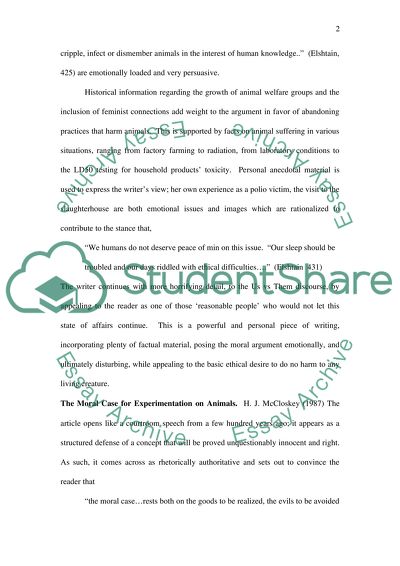Cite this document
(Animal Rights Literature review Example | Topics and Well Written Essays - 1750 words, n.d.)
Animal Rights Literature review Example | Topics and Well Written Essays - 1750 words. https://studentshare.org/law/1520550-animal-rights-style-and-subsrance-an-assesment
Animal Rights Literature review Example | Topics and Well Written Essays - 1750 words. https://studentshare.org/law/1520550-animal-rights-style-and-subsrance-an-assesment
(Animal Rights Literature Review Example | Topics and Well Written Essays - 1750 Words)
Animal Rights Literature Review Example | Topics and Well Written Essays - 1750 Words. https://studentshare.org/law/1520550-animal-rights-style-and-subsrance-an-assesment.
Animal Rights Literature Review Example | Topics and Well Written Essays - 1750 Words. https://studentshare.org/law/1520550-animal-rights-style-and-subsrance-an-assesment.
“Animal Rights Literature Review Example | Topics and Well Written Essays - 1750 Words”. https://studentshare.org/law/1520550-animal-rights-style-and-subsrance-an-assesment.


